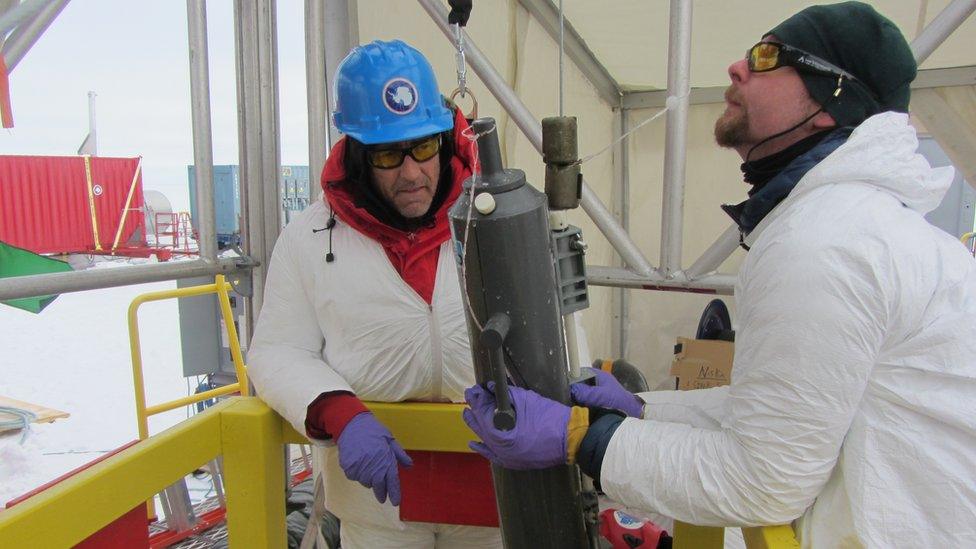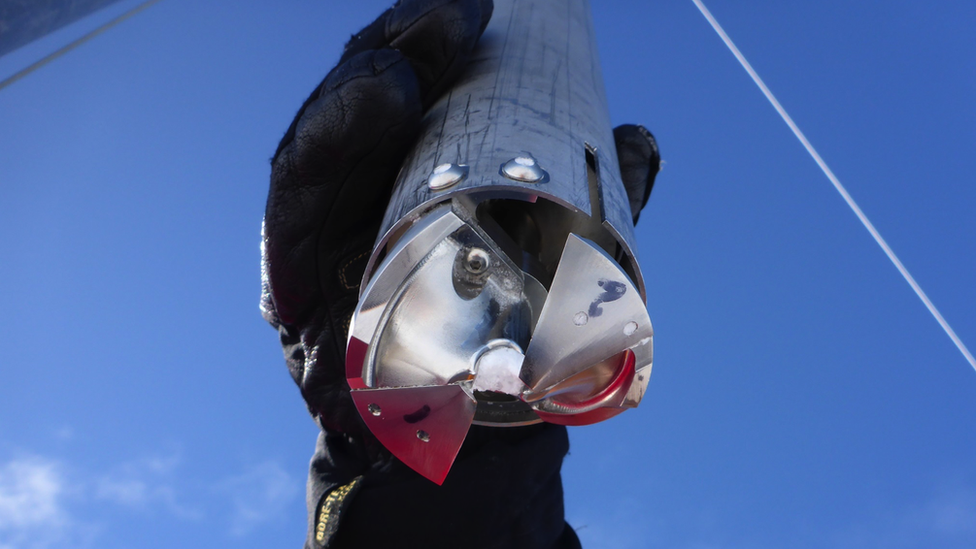Aberystwyth scientists find methane-eating bacteria
- Published

Bacteria found in a lake beneath Antarctica may prevent methane from being released into the atmosphere as ice sheets melt, according to scientists at Aberystwyth University.
Following a study with Louisiana State and Montana State researchers, the scientists said the methane-eating bacteria could provide a "bio-filter".
Scientists had been concerned about the effect the gas could have if released.
The findings have been published in the journal Nature Geoscience.
They analysed water and sediment samples from Lake Whillans, 2,624ft (800m) below the West Antarctic Ice Sheet, which was drilled in 2013.
Co-author Andrew Mitchell, from Aberystwyth University, was a member of that mission.
"We've been aware of microbial methane production in glacial environments and considered the impacts on climate, but this is the first time we have a detailed assessment of methane cycling underneath an ice sheet," he said.
"The really interesting finding is that while methane production is significant, most of the methane produced, about 99%, is actually oxidised by methanotrophs, which are microbes that live off and use up the methane and produce carbon dioxide in the process."
- Published14 November 2016
